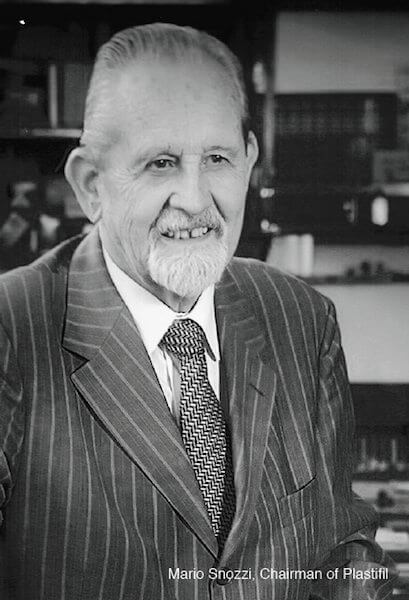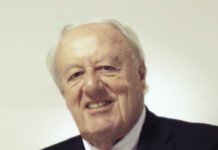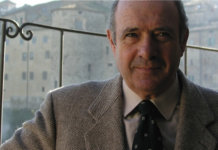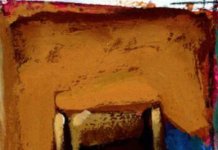Interview with Ugo Poggio, CEO of Plastifil, Switzerland
In the South of Switzerland beyond the Alps, in the canton of Ticino lies the idyllic municipality Mendrisio. This quaint corner right next to Lugano, is the home of Plastifil, a family business, which specializes in the manufacture of welded steel articles as well as small components forged in aluminium, brass, copper and other alloys, established by founder and pioneer Dante Ronchetti in 1934. The company’s current Chairman Mario Snozzi, nephew of the founder, purchased the company from his uncle and nurtured its growth throughout the decades that followed the acquisition. Over time Snozzi’s daughters and sons-in-law joined the company at the strategic level. Recently the fourth generation of the family, comprised of Snozzi’s three grandchildren, Elisa, Martino, and Cristina Piccioli, were each awarded a minor stake in the company and a seat on the board of directors ensuring the businesses family ownership is maintained moving forward.
Tharawat Magazine sat cosily in our Dubai office opposite Ugo Poggio, the current CEO of Plastifil, who explained his role as a non-family executive, the challenges and advantages of running a highly specialised company, and the merits of a family-central future at Plastifil.
[ms-protect-content id=”4069,4129″]
Ugo Poggio
Ugo Poggio joined Plastifil in 2007 yet clarifies that he has unofficially been a part of the family for a much longer stretch. He muses: “I’ve known the family for over 35 years now, maybe more. I met Mario Snozzi’s daughters through friends. We grew up together. I have always been close to Mario, who represents the second generation of the business. His son-in-law contacted me in 2006 regarding a project to revitalise the company. A few years ago I was hired as a consultant and suggested improvements to the business after which the family chose to offer me the job to run the company.”
It’s more than evident that even as a non-family member, Ugo Poggio identifies with Plastifil’s values to a great degree, which becomes increasingly apparent when he speaks of its history. “The beginnings of the company were based on the entrepreneurial efforts of Mr. Dante Ronchetti. He realised that there was a gap in the market that he could fill and specialised in welding. The company started with a different name, but after the Second World War, Ronchetti decided to combine the welding with coating technology, and that’s how the Plastifil name came about as it’s based on the Italian terms for plastic (plastica) and wire (filo),” offers Poggio. The family’s operation was the only in Switzerland able to coat welded wires with plastic materials and remains the market leader in high precision wire welding. This boundless competitive advantage opened market opportunities, which include providing parts for dishwashers and the company has continually grown from year to year. One building after another led to three, and today Plastifil’s headquarters span over 12,000 square metres right in the heart of home base Mendrisio.
The second generation in charge
The second generation of the business was championed by Mario Snozzi, Dante Ronchetti’s nephew. Poggio has much to say about the visionary manner in which Mario Snozzi managed the businesses imperative growth stage: “I think Mario Snozzi has run and still runs the business in a very conservative and wise way. He has never been as aggressive an entrepreneur as his uncle as times of course were different. He managed to run the company for fifty years and to pull it through several economic crises. It is thanks to him that we have a very healthy company today.” Indeed, Plastifil can proudly call itself an unleveraged cash-rich business run by the philosophy that nothing should be acquired that cannot be afforded. Poggio proudly adds, “We are not in the hands of anybody. We are free to take the decisions we want.”
Working in a family business as a non-family member
With the family’s fourth generation joining the board in early 2013, Plastifil is now home to four generations of the Snozzi clan working alongside one another. Ugo Poggio explains his distinguishable oneness with the family’s values as a non-family executive by way of an adoring remembrance: “My feeling of belonging to the family is greatly due to Mario Snozzi’s wife Ginevra who sadly passed away last year. She was the brains behind everything. I met her when I met the family, many years ago. She always called me her Italian son,” Poggio reminisces.
The successful recipe of the family behind Plastifil
Poggio, a long-time associate of the Snozzi family and Plastifil CEO for well over six years, attributes the company’s success to family values which have become intertwined with Plastifil’s business DNA. “They have a very deep sense of respect towards people. To the 200 employees, the company has always been a family and the owners of Plastifil make it a point to know the name and story of everyone. This is, in my opinion, a very important mindset in running a company. The family business is deeply embedded in its community in Mendrisio and has had a loyal customer base all through Switzerland,” declares Poggio.
Under Mario Snozzi’s direction, the family recently handed over a minor stake in Plastifil equity to each of his grandchildren, a responsibility which the three adult heirs take very seriously. “Snozzi has a very clear picture in his mind, regarding the future of his grandchildren,” explains Poggio. “He wanted them to become shareholders and to be board members in order for them to understand what is going on in the company. Then, they will be free to decide whether they want to take an operative role or not.”
The family’s governance is informally agreed upon by all members, including Snozzi’s daughters, sons-in law, and grandchildren. Poggio’s approach to collaborating with the family has always been to present his ideas to Mario Snozzi and the board of directors before proceeding. Decisions are only reached once 100 per cent unanimity is in place. Ugo Poggio warmly supports this approach: “While I am here, I will try and keep the structure this way. We don’t know what is going to happen in the future. But I am very much in line with Mario Snozzi’s way of running the business. Family-owned business must be run like a family. When there is conflict you have to be able to find a solution that agrees with everyone. Obviously this is a matter of compromise but we have to take decisions together, and we have to understand each other as well.”
The market position of Plastifil
The company has been a leader in its field within a range of international markets. A considerable share of Plastifil’s global renown is derived from a specialisation in micromechanics. Poggio is keen to highlight a decades spanning position as a supplier to the Swiss luxury watch industry. “This is a particular part of our history, we are the only company able to produce a certain kind of product that is vital for automation and industrial processes,” details Poggio. “I would define our activities as proof of our know-how. We produce over 7,000 products a year and there are only five products that are standardised. We customise our services to every customer based on the know-how of nearly 80 years of history, and that is the reason why I strongly believe in a bright future for Plastifil. Like most family-owned businesses, we have limited financial resources. We have always been very much linked to the Swiss market, and the immediately surrounding countries such as Germany, Italy and France. The nature of our company is to do things step by step. We have to have our own pace. Unfortunately, the world crisis has reduced the speed of our projects, such is the case for most companies worldwide. But we have a very clear picture of what we would like to do in the future.“
The know-how within
Plastifil has garnered prestige in the medical, micromechanics and automation fields, with a bank of additional services just nearby. Only ten per cent of the business focuses on hot stamping and moulding technology and Plastifil’s research and development is primarily done in-house. Equipment is developed and tailored by a team of six mechanical experts who tailor fit what’s necessary for each individual project. Poggio specifies that this happens as a result of the knowledge exchange between the company and its clients. “Everyone in the company has a very deep and specialised know-how. We discuss everything together and share our knowledge and learn from each other,” he offers. This model has resulted in a pool of specialised knowledge at Plastifil, which remains the master of its trade secrets.
Plans for internationalisation
Today, Plastifil is directing its focus towards an increasingly international client base and is looking for the right partners abroad. “The way we assure productive collaboration is through several key points: know-how transfer, partnership, support, understanding, and listening. We will never look for a short-term partner anywhere in the world,” affirms Poggio. When we ask Poggio how Plastifil’s specialised knowledge can be transferred to partners, he confidently replies: “Everything is transferred through personal contacts. We transfer knowledge through training. The most successful stories of Plastifil abroad are based on our technical and marketing training. This helps [clients] to understand how to deal with our products and allows us to establish a fruitful collaboration for both sides.”
Poggio adds that when the family business considers a partnership it is truly looking at forming a new family abroad. “I would like to keep on working with family-owned companies everywhere in the world. That is certainly what we are trying to do. Incidentally, our most loyal customers are also all family-owned businesses. Between family-owned businesses, there is a sort of a virtual transfer of DNA. Because we understand each other, and because we speak the same language.”
Tharawat Magazine, Issue 18, 2013
[/ms-protect-content]














